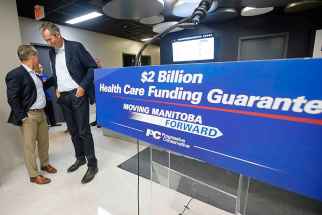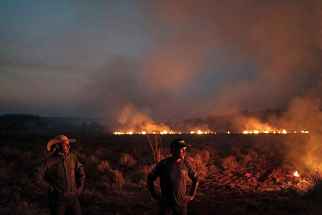City awaits report on potential medical cannabis grow-op zoning plan
Read this article for free:
or
Already have an account? Log in here »
To continue reading, please subscribe:
Monthly Digital Subscription
$0 for the first 4 weeks*
- Enjoy unlimited reading on winnipegfreepress.com
- Read the E-Edition, our digital replica newspaper
- Access News Break, our award-winning app
- Play interactive puzzles
*No charge for 4 weeks then price increases to the regular rate of $19.00 plus GST every four weeks. Offer available to new and qualified returning subscribers only. Cancel any time.
Monthly Digital Subscription
$4.75/week*
- Enjoy unlimited reading on winnipegfreepress.com
- Read the E-Edition, our digital replica newspaper
- Access News Break, our award-winning app
- Play interactive puzzles
*Billed as $19 plus GST every four weeks. Cancel any time.
To continue reading, please subscribe:
Add Free Press access to your Brandon Sun subscription for only an additional
$1 for the first 4 weeks*
*Your next subscription payment will increase by $1.00 and you will be charged $16.99 plus GST for four weeks. After four weeks, your payment will increase to $23.99 plus GST every four weeks.
Read unlimited articles for free today:
or
Already have an account? Log in here »
Hey there, time traveller!
This article was published 26/08/2019 (2296 days ago), so information in it may no longer be current.
Winnipeg city hall is awaiting a civil service report that could determine whether the municipal government tries to apply zoning bylaws to the legal home production of medical cannabis.
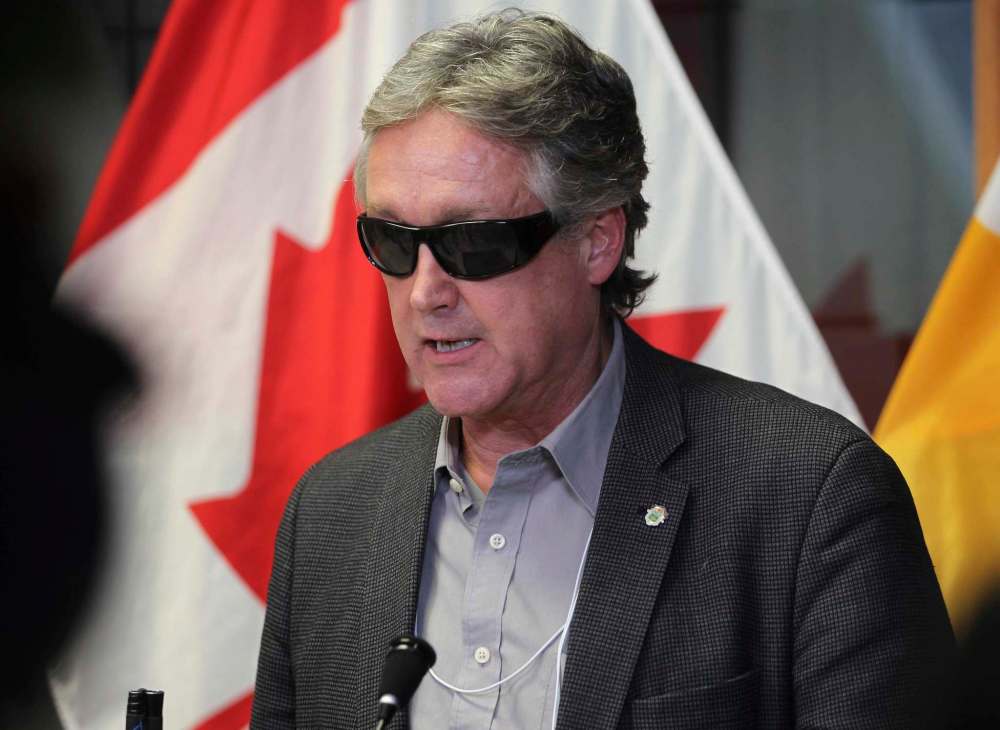
The proposal made by Coun. Ross Eadie (Mynarski) earlier this year calls on the city to “determine what number of (cannabis) plant production constitutes light manufacturing,” then inform the unknown number of Winnipeggers with legal medical marijuana gardens in their homes “they need to arrange to produce their cannabis in (light manufacturing) zoned properties.”
The property and development committee last discussed the proposal June 24, and laid the matter over until Sept. 4 to give the civil service time to consult about jurisdictional issues with the regulator Liquor, Gaming and Cannabis Authority of Manitoba.
“I don’t think there’s a huge appetite on council to start trying to go forward on this, but I think there was interest in finding out more (about) what the province might be doing,” said property and development committee chairman Coun. Brian Mayes (St. Vital).
“I think the sense is, this is not city jurisdiction, that we’re starting to get into provincial, federal jurisdiction.
“That’s my instinct, or my understanding, but I could be wrong — there could be something in the report that’ll change the mind of council, and we’ll move ahead,” Mayes said, adding he and other city councillors are familiar with complaints about medical cannabis being grown legally in residential areas of Winnipeg.
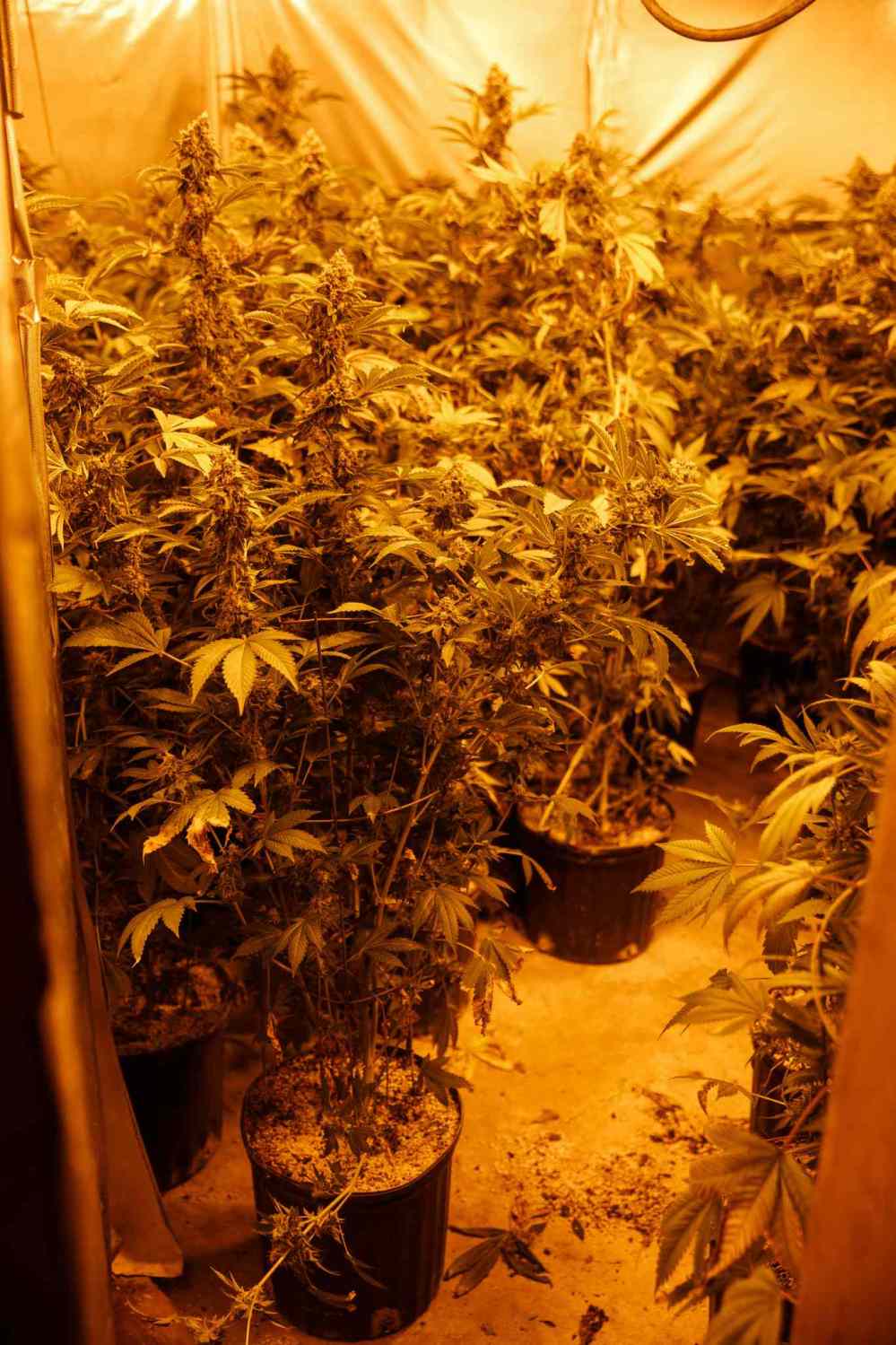
Retired deputy fire chief Stephen Sumka is one of those frustrated Winnipeggers. He lives near a suspected personal medical cannabis grow-op in a house in the Garden City neighbourhood. His observations align with his professional experience of what grow-ops look like.
“Normally what happens with these properties is that the yards are unkempt, the windows are all covered, there’s no movement outside of the house,” said Sumka.
A power transformer behind the house exploded and caught fire last November, he said. “And that’s one of the indicators of either a grow-op or some nefarious activity, that they use a lot of power.”
A person whose parents live near the suspected Garden City grow-op, who did not wish to be named, told the Free Press Winnipeg police visited the house in question this summer. The source said police inspected the home and found more than 100 cannabis plants being grown inside, but determined the site was appropriately licensed by Health Canada for personal medical cannabis production.
A Winnipeg Police Service spokesperson declined to confirm those details, citing privacy concerns.
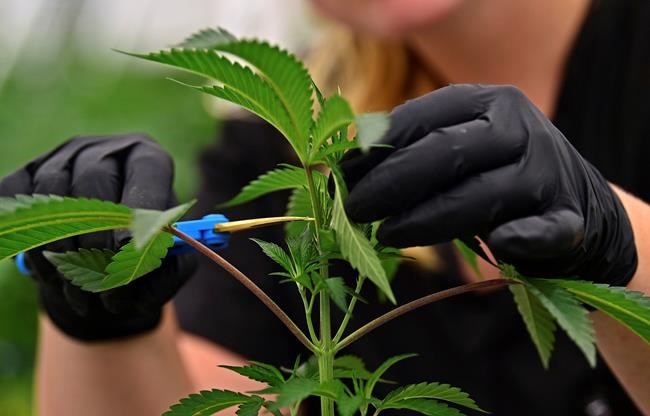
The federal government legalized non-medical marijuana in October 2018, permitting Canadian adults to grow up to four cannabis plants at home. The governments of Manitoba and Quebec both outlawed that practice, and growing any amount of non-medical cannabis in Manitoba is punishable by a $2,542 fine.
But the Health Canada program that lets residents produce their own cannabis for medical purposes predates both legalization and the current federal government. Home cultivation of medical cannabis under that federal program remains legal in Manitoba, as long as the grower is licensed by Health Canada.
Registering for the program requires a doctor’s authorization for a certain daily dose of cannabis, which determines how many plants the registrant can grow. Health Canada data shows 1,285 registrations for personal medical cannabis production in Manitoba as of March.
A 2016 federal court ruling upheld Canadians’ right to grow their own marijuana for medical purposes, but critics of the home cannabis cultivation program have complained it allows people to grow unreasonable amounts in residential neighbourhoods.
“For somebody to say, ‘It’s just a medical marijuana grow-op for personal use,’ there needs to be some type of restrictions on what can be done.”–Stephen Sumka
In 2018, the Free Press covered the case of a home in the Maples neighbourhood, where 292 cannabis plants were allegedly being grown. A neighbour called police, who told him the grow-op was licensed and legal.

Sumka wants the city to take action to ensure home medical cannabis gardens are safe. He’s worried such grow-ops bring risks such as fire, organized crime, and devaluation of neighbouring homes.
“I think they need to go in there, from a public safety perspective, and really inspect that building, and see what’s going on,” he said.
“And for somebody to say, ‘It’s just a medical marijuana grow-op for personal use,’ there needs to be some type of restrictions on what can be done.”
Eadie said he’s waiting to read the civil service’s report, “but I can pretty well tell that they’re going to be recommending to do nothing.”
“The appetite is not to do it because they’ll say, ‘Oh, it’s going to cost too much money,'” said Eadie.
“Well, you know, what is it costing those people who live next door to those houses? The value of their properties have gone down.”
solomon.israel@freepress.mb.ca
Twitter: @sol_israel



